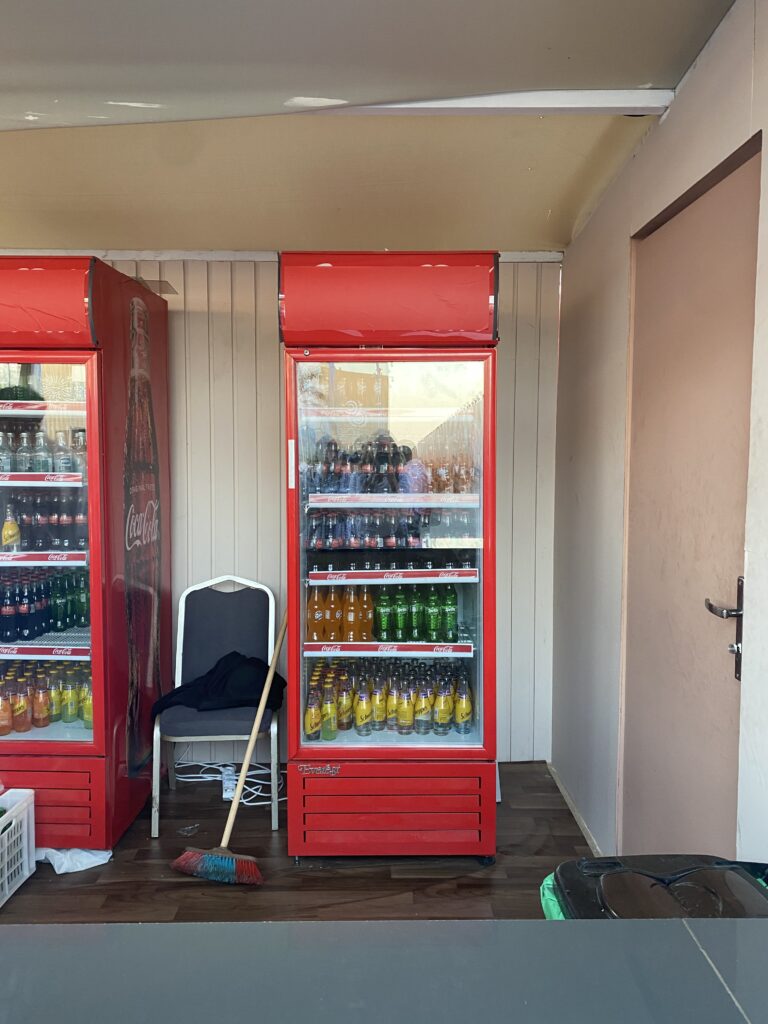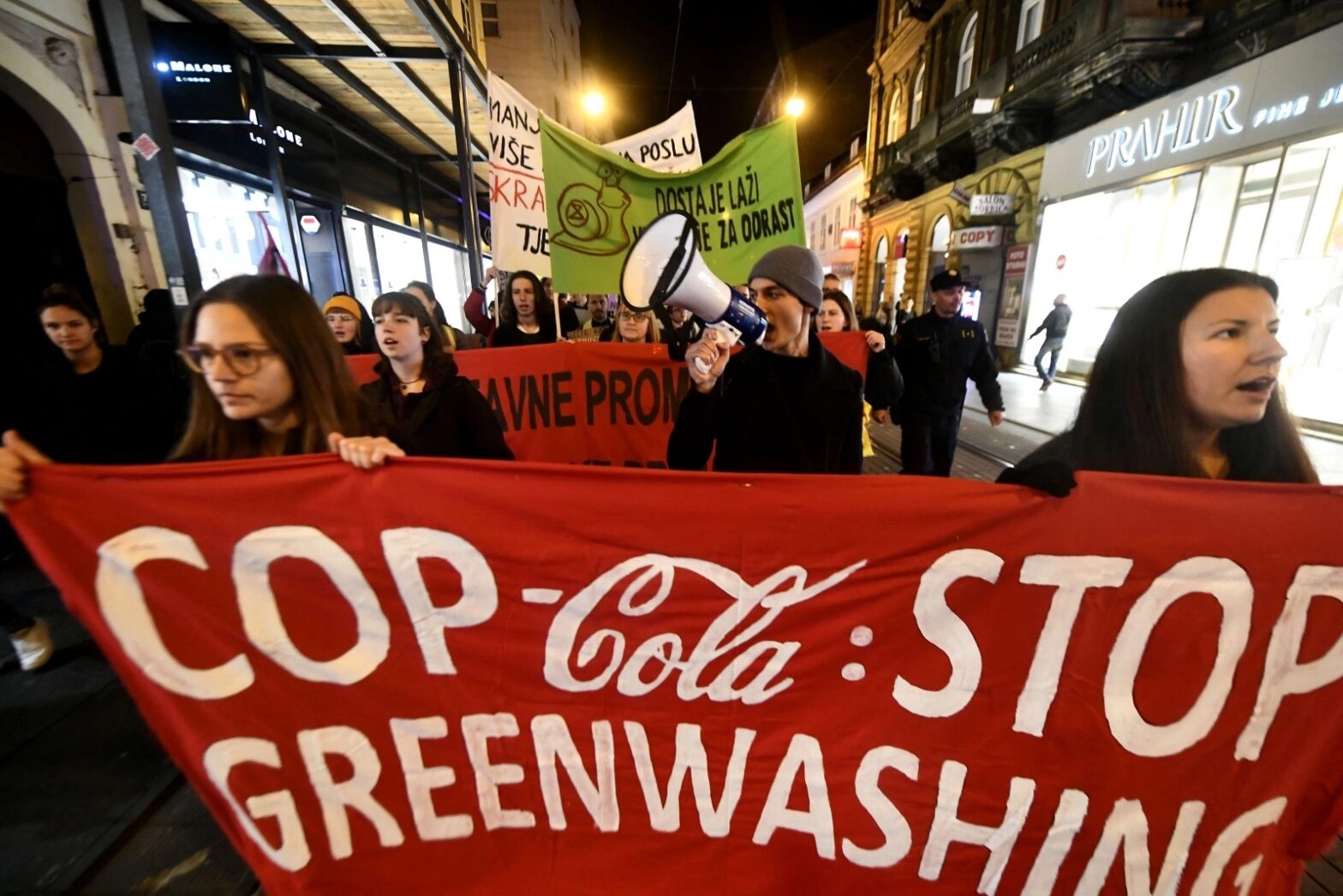By Reeve Schroeder
After hours of walking from one event to another in the hot sun, I was consistently craving a cold, refreshing drink. I will admit, I usually went for a Fanta. Coming from the United States, finding soda in glass bottles is exciting, and I might be making this up, but the Fanta in the glass bottle always seems to taste much better. At the buffet located inside the 27th Conference of the Parties (COP27), Fanta (or other Coca-Cola-owned sodas) were included in the price – it was hard to pass them up.
A chilled bottle of soda was a nice pick-me-up during long days at the conference, but its prevalence was troubling. Not only were Coca-Cola-owned sodas available at the buffet, but they were for sale in nearly every snack and coffee stand in the venue – a product of Coca-Cola’s sponsorship of COP27. The coffee sold was from Nescafé, a brand owned by Nestlé. Finding a Coke was much easier than finding a nourishing meal.

Coca-Cola brand drink coolers that were present throughout the venue.
Coca-Cola and Nestlé have both been named two of the world’s largest polluters. Coca-Cola, for example, sells more than 500 billion plastic bottles every year (Plastic Soup Foundation 2022). While I did not see any plastic bottles being sold inside the conference venue, the promotion of the brand was still questionable for a conference supposedly devoted to climate change issues. Both brands have made promises to make their products sustainable, but these have yet to come to fruition, and so far their efforts are best described as greenwashing.
Leading up to COP27, several activists spoke out against Coca-Cola’s sponsorship and criticized other sponsors like Microsoft, a tech company tied to the oil and gas industry (Tigue 2022). However, even after a petition to remove Coca-Cola as a sponsor collected over 233,000 signatures, the sponsorship remained intact, and Coca-Cola products were widely distributed throughout the conference.
This leaves me with more questions than answers… Is it possible to host a large, multinational summit without corporate sponsorships? And, if these sponsorships are financially necessary, what does that mean for our capacity to make systemic change?
Bibliography and Further Reading
Engelbrecht, Cora. 2022. “Coke is a Sponsor of the Climate Summit in Egypt. Some Activists Aren’t Happy.” The New York Times, November 7, 2022. https://www.nytimes.com/2022/11/07/climate/coca-cola-sponsor-cop27-climate-egypt.html
Kopp, Mirjam. 2019. “Nestle: Slay the Plastic Monster You Created.” Greenpeace, March 25, 2019. https://www.greenpeace.org/international/story/21542/nestle-slay-the-plastic-monster-you-created/
Plastic Soup Foundation. 2022. “Is Coca-Cola’s latest promise really a step forward?” Plastic Soup Foundation, February 18, 2022. https://www.plasticsoupfoundation.org/en/2022/02/is-coca-colas-latest-promise-really-a-step-forward/
Tigue, Kristoffer. 2022. “Coke Sponsoring COP27 is the Definition of ‘Greenwashing,’ Activists Say.” Inside Climate News, October 25, 2022. https://insideclimatenews.org/todaysclimate/coke-sponsoring-cop27-is-the-definition-of-greenwashing-activists-say/
